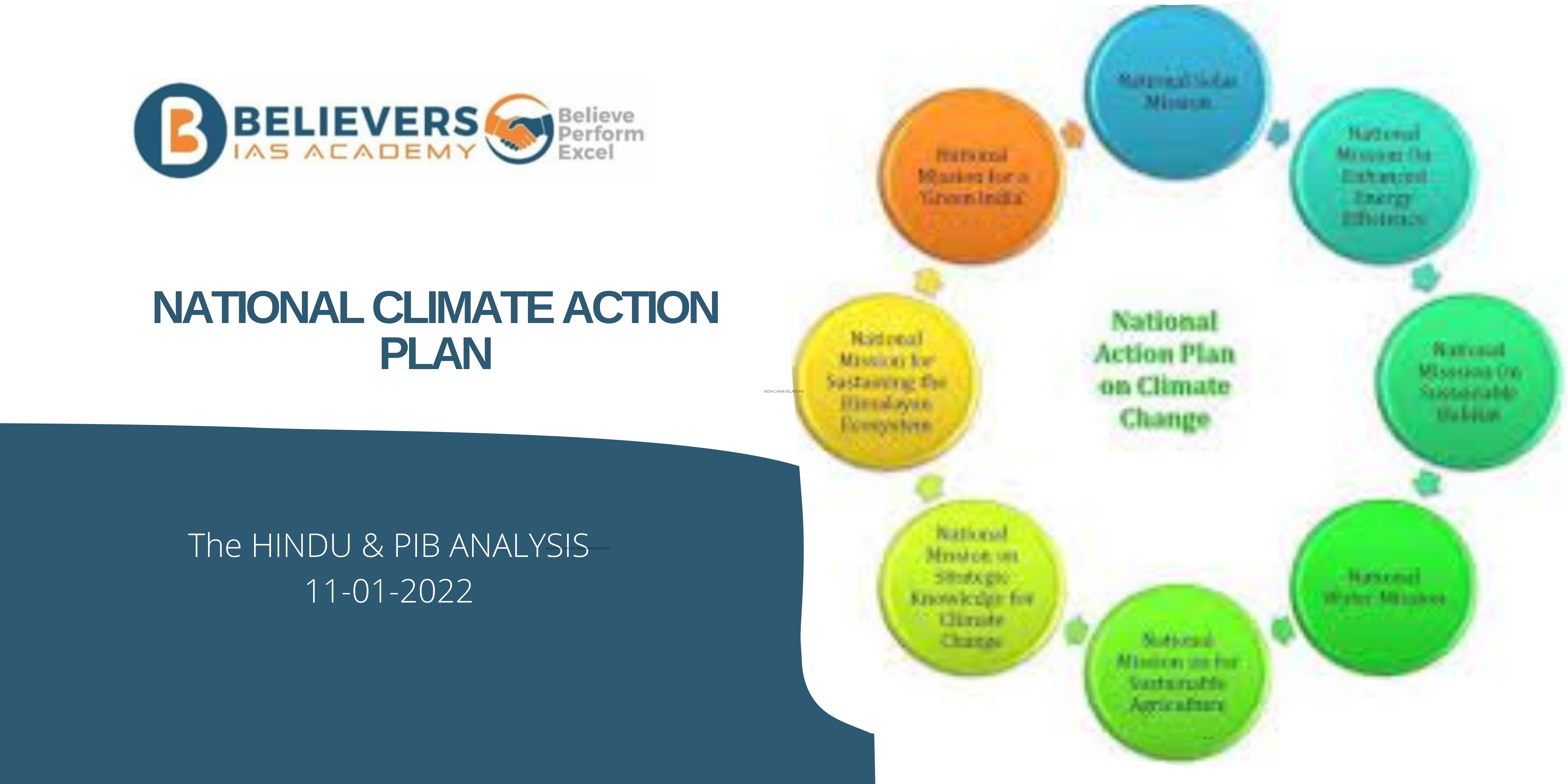NATIONAL CLIMATE ACTION PLAN
- The National Clean Air Program is comprised of the following components:
- The Union Ministry of Environment, Forests, and Climate Change launched it in 2019.
- It was not reported to the Environmental Protection Agency or any other government agency.
- It is envisioned as a strategy to offer a framework for the states and the federal government to address air pollution.
- Its main target is to reduce the concentration of coarse (particulate matter with a diameter of 10 micrometer or less, or PM10) and fine (particulate matter with a diameter of 2.5 micrometer or less, or PM2.5) particles in the atmosphere by at least 20% by 2024, using 2017 as a baseline.
Who will all take part:
- The Ministry of Road Transport and Highways, Ministry of Petroleum and Natural Gas, Ministry of New and Renewable Energy, Ministry of Heavy Industry, Ministry of Housing and Urban Affairs, Ministry of Agriculture, Ministry of Health, NITI Aayog, and the Central Pollution Control Board will collaborate on the program, which will include experts from industry and academia.
Which cities will be affected:
- Non-attainment cities were first selected from 102 cities across 23 states and territories.
- The majority of the cities considered are tier two cities, with the exception of Delhi, Mumbai, Kolkata, and Bengaluru.
- The cities were chosen based on ambient air quality data collected by the National Air Quality Monitoring Program (NAMP) between 2011 and 2015.
- The state of Maharashtra had the most cities selected for the program.
Source: THE HINDU.




